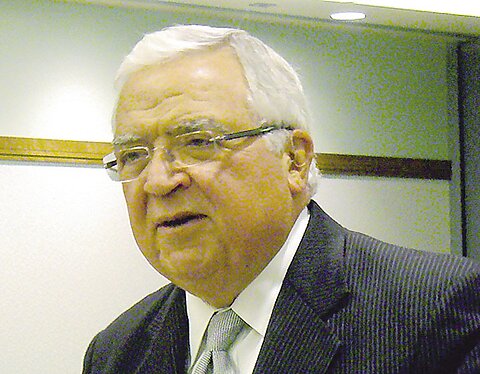
The House of Representatives impeached Department of Homeland Security (DHS) Secretary Alejandro Mayorkas, and now some senators are pressing to hold a trial. As I’ve explained, the charges against Mayorkas are meritless. I have also listed all the ways that this administration has tried to increase immigration enforcement since January 2021. But one further complaint is that ICE has released convicted criminals or people with pending criminal charges, yet the broader context is that this has become less likely under Mayorkas.
Figure 1 shows the number of individuals released by Immigration and Customs Enforcement (ICE) when they have criminal convictions or pending criminal charges from fiscal year 2019 to 2024 through half the fiscal year. It shows that releases of such individuals fell from 34,415 in 2019 to 15,514 in 2023. In 2024, the current pace would be 13,623—a 60 percent reduction in those releases. (Note: ICE has not published data on releases before 2019.)
Figure 2 shows the same data on a monthly basis, revealing a significant drop in ICE removals under the Biden administration starting in mid‐2021. The monthly ICE data on releases starts in FY 2021.
Figure 3 shows the number of criminal releases as a percentage of criminal arrests on a quarterly basis. This shows that, except for his first quarter in office, Biden has released a lower percentage of those arrested than Trump did from October 2020 to December 2020, falling from 27 percent of arrests to 17 percent in the most recently available quarter. This shows that falling releases are not just a consequence of falling arrests. In fact, in the most recent quarter, ICE arrested nearly 1,500 more people with pending criminal charges or criminal convictions than in the final quarter of the Trump administration.
Of course, ICE is just one agency, and Customs and Border Protection (CBP) also releases people. But the point is that people are wrong to conclude that the phenomenon of releasing people with criminal convictions or charges is unique to the Biden administration. As the Trump administration noted in 2019, DHS recognizes “the need to prioritize extremely limited detention resources (including through the release of aliens not subject to mandatory detention, or who do not appear to pose a public safety threat or flight risk).”
Nonetheless, it’s also interesting to note that the Trump ICE released a higher number of these types of immigrants in 2020 than the Biden administration has, even though the total number of releases was much lower, as Figure 4 shows. Immigrants charged with or convicted of crimes were 34 percent of releases in 2020 compared to 10 percent in 2023.
How concerned should people be about these releases? As I’ve previously noted, most immigrants with criminal convictions are convicted of nonviolent crimes like drug possession, illegal entry, or non‐DUI traffic offenses. Just 11 percent were convicted of violent crimes. Unfortunately, we don’t know the breakdown of the crimes that people who were released committed. But we can say that nearly half of the convicted criminals entering ICE’s custody were not convicted of felonies. Moreover, serious criminals aren’t likely to be released absent a court order under this administration’s priorities for enforcement.
ICE should be prioritizing the detention and removal of criminals convicted of crimes that threaten the safety of others, but every administration, including the Biden administration, spends far more resources on people with no criminal history at all. Right now, over two‐thirds of ICE detainees are neither charged with nor convicted of any crime—even immigration crimes—and the same is true of 70 percent of removals.
Law enforcement agency resources are finite, and they should be devoted to targeting serious criminals and threats to the public, not micromanaging our demographics or labor force. Opportunity costs are real. Every minute that ICE or CBP wastes on pursuing someone seeking to work here is a minute they are not pursuing someone who may threaten the public. To end these wasteful practices, America should rethink its immigration system to provide legal ways for people to come to and work in this country.



